The ability to mix – or compound – drugs in sterile conditions is paramount when treating and medicating people with serious diseases such as cancer. Sciensus provides treatment to more than 200,000 patients across the UK, some of whom have cancer. The company’s service depends on its capacity to prepare individualised medications for each patient in rigorously controlled aseptic conditions.
Sciensus makes medicines for ready-to-administer infusion bags, syringes and infusion devices. To ensure sterility, the compounding process takes place inside two Getinge glove isolators, each equipped with a bio-decontamination chamber where hydrogen peroxide sanitises all product surfaces to ensure a high degree of sterility assurance, with a proven 6-log reduction of bioburden and the highest hygiene standards.
Best-in-class equipment for highest assurance
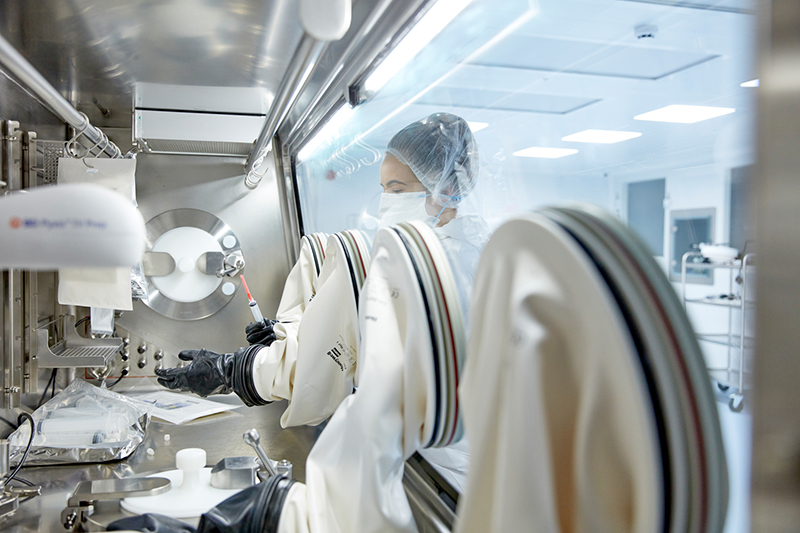
“We aim at all times to provide a premium service to our patients and that means using best-in-class equipment and facilities. Our isolators provide us with the high level of sterility assurance we need to serve our patients,” says Jo Gautam, Accountable Pharmacist at Sciensus.
Transferring material into and out of isolators requires specialist technologies.
Getinge’s GMP ISOFLEX-R isolators come with a DPTE® transfer system that uses a RTP or Alpha-Beta transfer port that allows material to be moved from one sterile zone to another through a non-sterile zone, with leak-tight, risk-free reconnection.
The DPTE solution is now the gold standard for the production of aseptic or toxic products in pharmaceutical factories and biomedical research, says Jonathan Grogan, National Sales Manager Life Science at Getinge UK.
“Isolators may be required to protect a process from the environment, for example in the case of aseptic production, or the environment from the process – for instance when handling toxic materials,” he explains. “In some cases, such as preparation of cytotoxic injectables for cancer treatment, it may be both.”
Supports integrated software
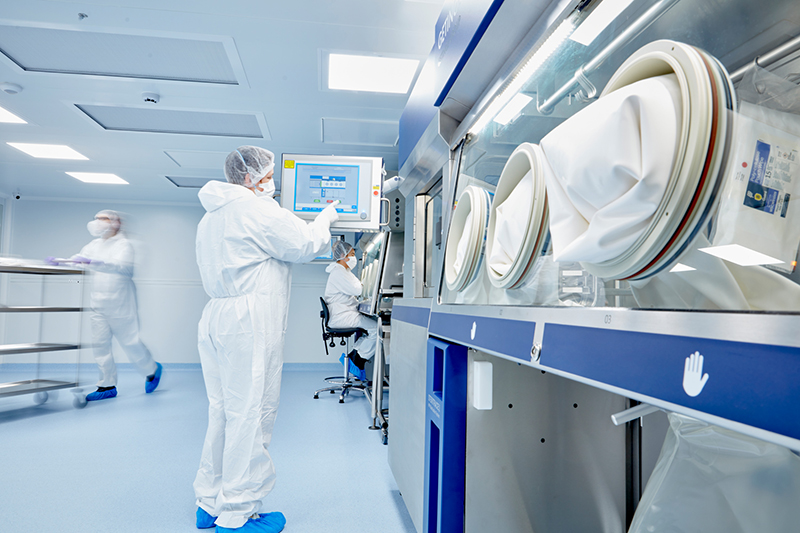
For Sciensus, a core benefit of Getinge’s GMP ISOFLEX-R isolator is that it supports dedicated chemotherapy software that provides data monitoring, gravimetric preparation, barcode tracking and camera monitoring of the compounding process. Access to such a wealth of technical information makes it possible to investigate and detect the source of a problem in the event of any process or product failure.
“Being able to check exact milligram weight and product tolerances – and to review images captured at every stage of production allows Sciensus to check every step of the process before product is released for despatch.
“This ensures the releasing pharmacist has oversight, analysis and review of every preparation step during the final release of the products being compounded by our aseptic operators working in the Getinge Isoflex-R isolators,” says Jo Gautam of Sciensus.
No sterility failures and high repeatability
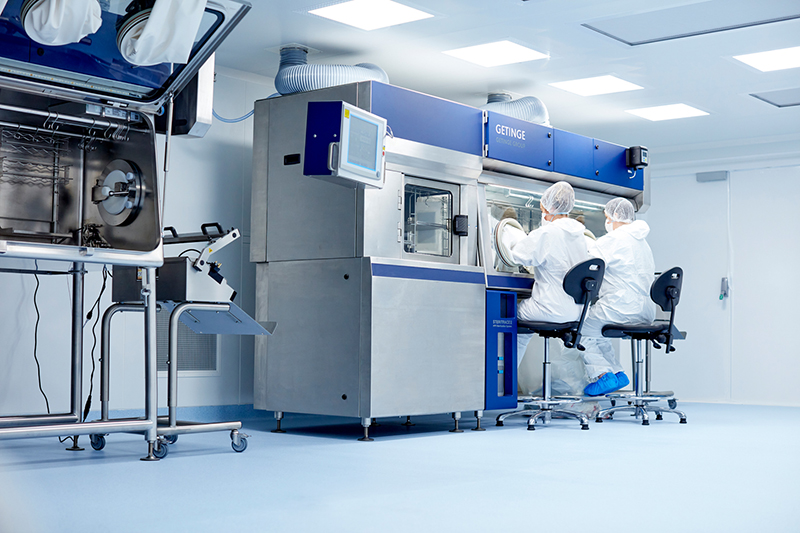
The high level of repeatability of the Getinge ISOFLEX-R isolators, installed in February 2020, was one reason Sciensus chose to install gassing isolators instead of conventional non-gassing isolators.
Jo Gautam says: “Gassing isolators have been shown to deliver more reproducible results than traditional isolators, where operators conduct a two-stage transfer of materials using spray and wipe before the products are made. This approach depends heavily on the operator’s technique, which is not the case with a gassing isolator.”
Sciensus’ two isolators work side by side at the company’s state-of-the-art cleanroom in Burton-on-Trent in central England. The site is linked to a central distribution centre from where the compounded medications are supplied throughout England, Scotland, Wales and Northern Ireland by road. Sciensus’ nationwide team of specialist chemotherapy nurses then administers the medicines locally, typically within 24 hours of formulation.
The comfort of treatment in the home
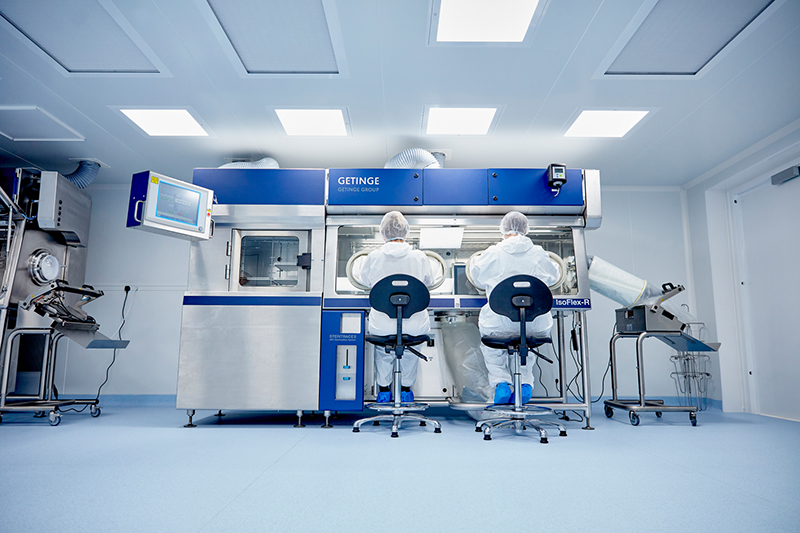
The company is a leading healthcare provider. For 30 years it has worked in partnership with the NHS, private medical providers and pharmaceutical companies to bring patients the life-changing treatment they need, in the convenience of their own homes. In recent years it has observed a sharp uptick in demand, with numbers of cancer patients increasing by 5 percent annually.
Christopher Appleby, Sciensus’ Chief Pharmacist, explains that receiving care in the comfort and privacy of one’s own home is a comfort for many patients and their families, especially in the Covid era.
“Our service is very tailored to the patient’s requirements. We can fit the treatment around them as opposed to them facing the challenges of going into hospital which can often mean travelling long distances,” he says. “We hear many heart-warming stories of how our services help people and their families as they receive one to one care and specialist support from our clinical nurse specialists. For us, it’s all about the patient journey – instilling confidence and making their lives as easy as possible.”
Jo Gautam adds: “For some people, travelling to a hospital can take hours. Because they may feel unwell after treatment, the hospital may make them wait for several hours afterwards. Being treated at home removes the need to wait or to rely on family and friends to pick them up and take them home.”
COVID a driver of home care popularity
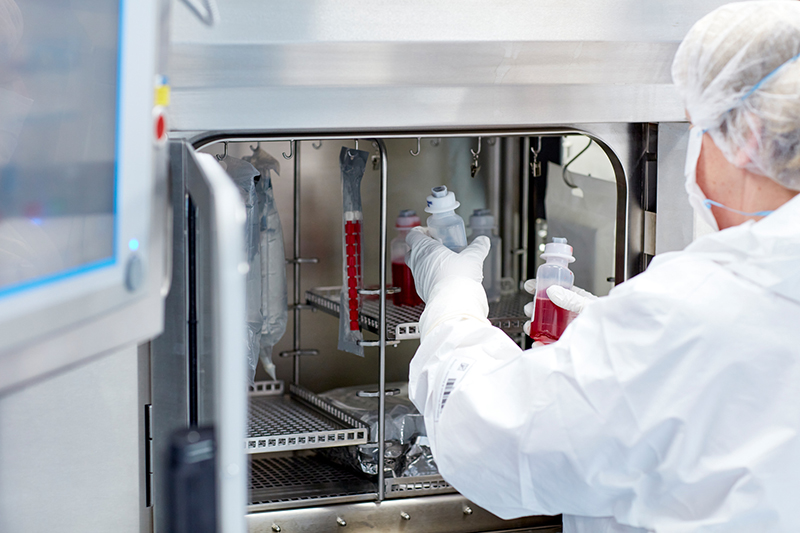
Uptake of cancer care at home has risen during the COVID pandemic. Patients whose immunity has been compromised by treatment are often relieved to avoid hospital visits and potential infection risk. In addition, UK hospitals are struggling to cope with treatment backlogs caused by the pandemic. Treating patients in their homes helps to ease hospital congestion and free up clinical capacity.
Previously, Sciensus outsourced the manufacture of its aseptically compounded products to a commercial provider. But the company discovered that subcontracting these services came with considerable disadvantages.
“The risks associated with outsourcing are high, based on not having full control of both manufacturing and logistics. Sciensus found itself frequently being let down by orders that failed to be delivered in full and on time,” says Getinge’s Jonathan Grogan.
“At Getinge, our role is to be a reliable partner that enhances the customer’s business and supports their ambitions. That’s where the reliability and quality of our equipment come in, and also the aftercare service we provide through our highly skilled national network of engineers. Our passion and enthusiasm for improving outcomes for others is at the core of everything we do.”
Partnerships essential to securing high sterility
Sciensus’ Chris Appleby agrees that a close partnership is vital when producing complex – and potentially life-saving – products that demand high processing standards.
“The whole piece around being a reliable supplier is incredibly important to us. Getinge scored particularly highly on technology, reliability, availability and their expertise in the field because they are well established,” he says.
“Compounding is a small world and reputations are known very quickly. For the sake of our patients it’s important we have a state-of-the-art facility with state-of-the-art equipment that allows us to provide a premium service to our patients at all times.”
About Getinge
Getinge is a leading global provider of products and systems that contribute to quality enhancement and cost efficiency within healthcare and life sciences. The company employs more than 10,000 people, and operates in 38 countries.
Contact Getinge: Getinge Ltd, i2 Mansfield, Hamilton Way, Oakham Business Park, Mansfield, NG18 5FB, United Kingdom Tel: 01773 814730, email: uk.marketing@getinge.com
Learn more about Sciensus: www.sciensus.com
